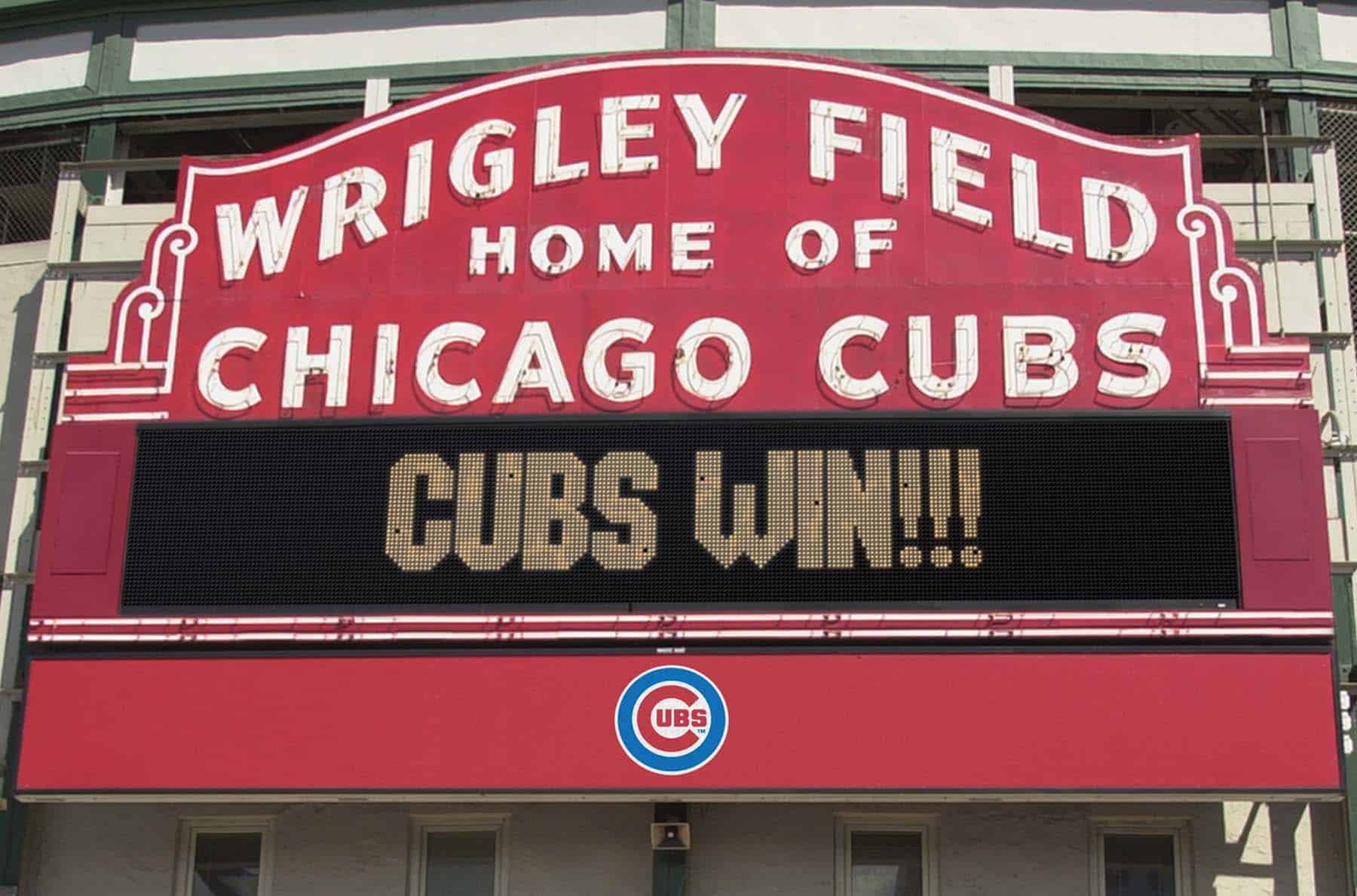
The Strange Allure of Championship Droughts and What it Means for Cubs Fans
I didn’t stumble across baseball until late 2004, when the final outs of a historic World Series flickered on my bedroom television in Wirral, England. I was 10 years old, and the game was initially a mystery. Yet, strangely, I found the narrative of that Red Sox team intoxicating. The end of long championship droughts is a rare occurrence in sports, and Boston’s success after almost nine decades was beguiling, even to my untrained eye. That sentiment stuck with me as I learned to love baseball. Reading books and watching films, staying awake until sunrise watching Jon Miller on Sunday Night Baseball, America’s national pastime ultimately became my most fervent obsession. All the while, I harbored a rather peculiar interest in curses and sporting pain.
Perhaps inexplicably, I enjoyed the work of Dan Shaughnessy and his incessant ravings about Harry Frazee selling Babe Ruth. There was something wonderfully dark and cathartic about the whole story. Then, in 2005, the White Sox ended their own jinx in the first World Series I remember vividly. I was totally captivated, not necessarily by the specific teams or players, but by what their achievements represented in the annals of baseball history and the hearts of adoring fans. My father even managed to find newspaper clippings of that Series in British newspapers, a rare discovery that still fills me with nostalgic excitement. The tales of Shoeless Joe Jackson and Arnold Rothstein were brought to a new audience, as were the exploits of Ozzie Guillen and his modern Sox. I was transfixed.
There was a substance to these teams, I thought. They had a gravity and purpose in a world of ephemeral feeling. When American teams crisscross the country, chasing profit as corporate franchises, it can be difficult to discern meaning in their existence. If not to shower a specific city with joy and pride, then what is the point of playing at all? Sure, there was significance in the Yankees’ perpetual thirst for greatness, and importance in traditional teams deeply rooted in their communities, like St Louis and Detroit. But teams defined by championship droughts somehow took on a deeper level of import. From ceaseless yearning comes a strong identity that simply isn’t present in more successful towns.
Perhaps it’s because I’m English. We love an underdog story. Heck, we haven’t won the World Cup since 1966, and generations came and went without seeing a native winner of Wimbledon. Then again, perhaps it’s just sheer masochism. However, I continue to be intrigued by teams and fanbases for whom waiting faithfully is a way of life. I’m not overly fond of actual losing, but the endless odyssey of winning just one championship is deeply exhilarating.
It took me a while, but I eventually found the mother of all curses, droughts, and endless pursuits. The Chicago Cubs, as the entire world knows, have not won a World Series since 1908. As Steve Goodman sang so beautifully, the “last time the Cubs won a National League pennant was the year we dropped the bomb on Japan.” For many decades, the North Side has rarely even encountered baseball success, let alone experienced it wholeheartedly. That elicits a whirlwind of emotions that I find enticing.
Down the years, I read about billy goats and black cats, poor trades and aborted rebuilds, but what made me fall in love with the Cubs was Catching Hell, the ESPN 30 for 30 film focusing on the 2003 NLCS. It may seem strange that a documentary centered on Cubs anguish should catalyze a deep interest in that very team, but there was a more nuanced thread running through that film that is often overlooked. The testimony of diehard fans put a lump in my throat. The palpable dream, shared by millions, stirred my soul. This stuff was deep, it mattered.
Hardcore fans may hate it, but defeat is the Cubs’ elixir. They more they lose, the more people are engrossed. That, in itself, is very disconcerting, although there is little point fighting the concept. Moreover, there is something brilliant about that, something unique and daring and uplifting. That paradox between annual agony and a fanbase of such size and passion never ceased to amaze me.
In this regard, one could argue that, right now, the Cubs are the most purposeful sports team on earth. Not the best or richest or most famous. The most purposeful. Sure, Barcelona and Real Madrid strive for constant excellence, and the Canadiens have a tremendous utility in unifying French and English Montreal. Yet no team carries such a dense weight of communal hope as the Chicago Cubs. No other team is burdened with over a century of dreams, derived from the heart of millions around the world. In the immortal words of Eddie Vedder, “Don’t let anyone say that it’s just a game, for I’ve seen other teams and it’s never the same. When you’re born in Chicago, you’re blessed and you’re healed, the first time you walk into Wrigley Field.”
It’s easy to pour scorn on the Cubs, to see them as losers in the strictest sense. The cynical age of social media heightens that, with a desire for instant gratification buried in the zeitgeist. We live in a what have you done for me lately culture, with people keen to snipe and snarl. Over the years, memes and GIFs have not been kind to the Cubs, as we all know. It’s easy to reference 1908, or say that, rather than celebrating in the street, a Cubs fan turns off the PlayStation after winning the World Series. We know. We understand. But there is so much more to Cubs fandom than meets the eye. There’s an implacable feeling to the Cubs. This team has an identity, some would say a malady, that makes it different and distinguishable. The Cubs aren’t just some other team; they’re a necessary reminder of our own mortality.
Many argue that, deep down, certain Cubs fans don’t want to win the World Series; that the constant fight for, rather than the attainment of, that ring gives their lives structure and meaning. The emotional investment of so many intelligent and passionate fans on Twitter debunks that argument, but I do often wonder what it would be like if the Cubs do ever win it all. Once the champagne dries and the memorabilia is stuffed in a drawer, what would the Cubs look and feel like? What will it mean to be a Cubs fan?
I think most fans have contemplated that dilemma. There is no doubt that, for over a century, the distinctive scent of Cubdom has been fatalism blended with paranoia, sprinkled with some fear and a little trepidation. What replaces that sense of impending doom if they actually win? Will the Cubs become as bland and generic as other teams just trying to win another championship rather than the championship?
Whether Cubs fans like it or not, dealing with baseball failure has been a hereditary obsession on the North Side for a very long time. Some may argue that hardball pain has seeped into the bloodstream and become a cornerstone of everyday life. What happens when that foundation, that default outlook, is taken away? Even now, as the Cubs morph into a powerhouse, things are somewhat disconcerting for longtime fans. I image it to be like my rainy hometown suddenly trading climates with San Diego. Our entire worldview would be changed. Largely for the better, but still distinctly different from what we’ve always known.
The Red Sox are usually offered as a case study, but although their drought was more publicized, it may not be totally analogous with that of the Cubs. Chicago has waited far longer, and the Cubs haven’t even won a pennant in seventy years. What’s worse: losing in multiple World Series or never getting there at all? It’s difficult to make too many comparisons.
Obviously, I want the Cubs to win and change the overwhelming narrative, but it is worth contemplating the price of success. If a moment of bliss causes a lifetime of change, do you want that? Many will, but some won’t.
Though some dare not mention it, there’s a certain glory in defeat when it happens so often and so cruelly. Losing prolifically has imbued the Cubs with a grandeur and distinction that many have fallen in love with. At the very least, things would be different if that was taken away. Yet, by the same token, so much effort from so many people has gone in to even giving the Cubs a shot at glory that it would be asinine to begrudge this fanbase a championship.
Perhaps Goodman summed it up best in a song entitled When the Cubs Go Marching In: “Here’s to all those Cubs fans, who have had to hold their breath. And sometimes you think they might win, and it scares you half to death.”
For so long, people have been fascinated by the Cubs’ inability to win. It remains to be seen whether a Wrigley championship provides a greater thrill than the pursuit thereof.

